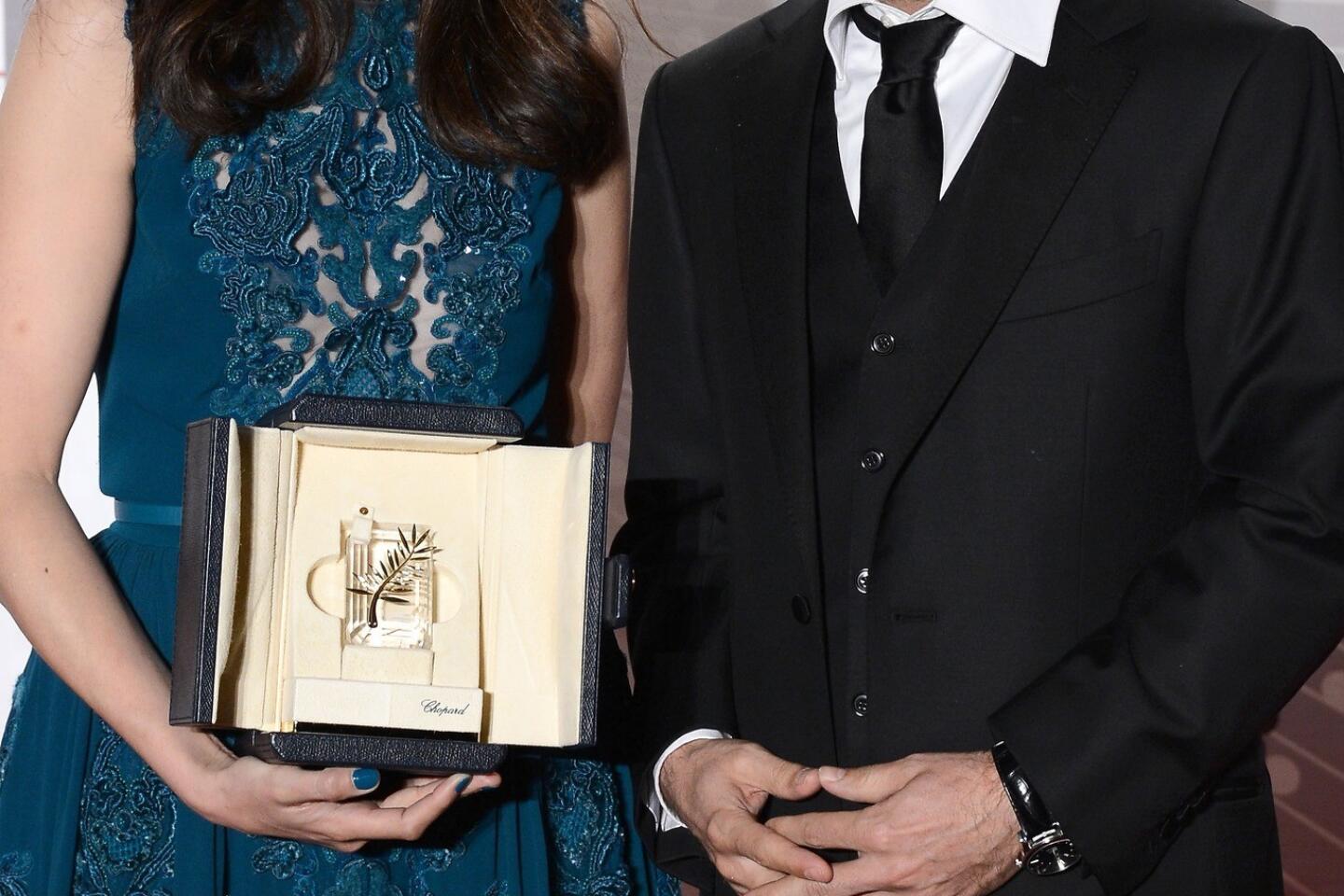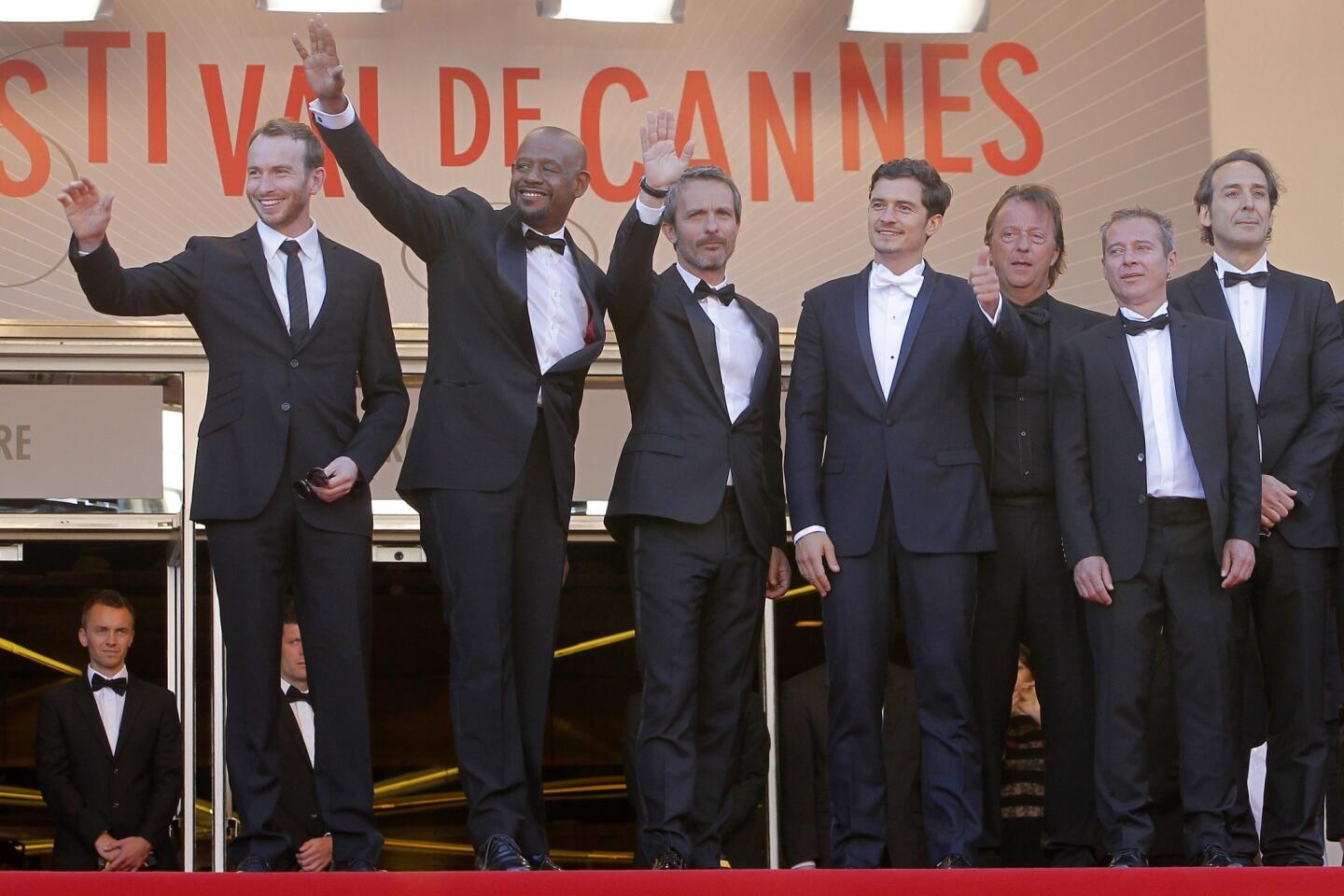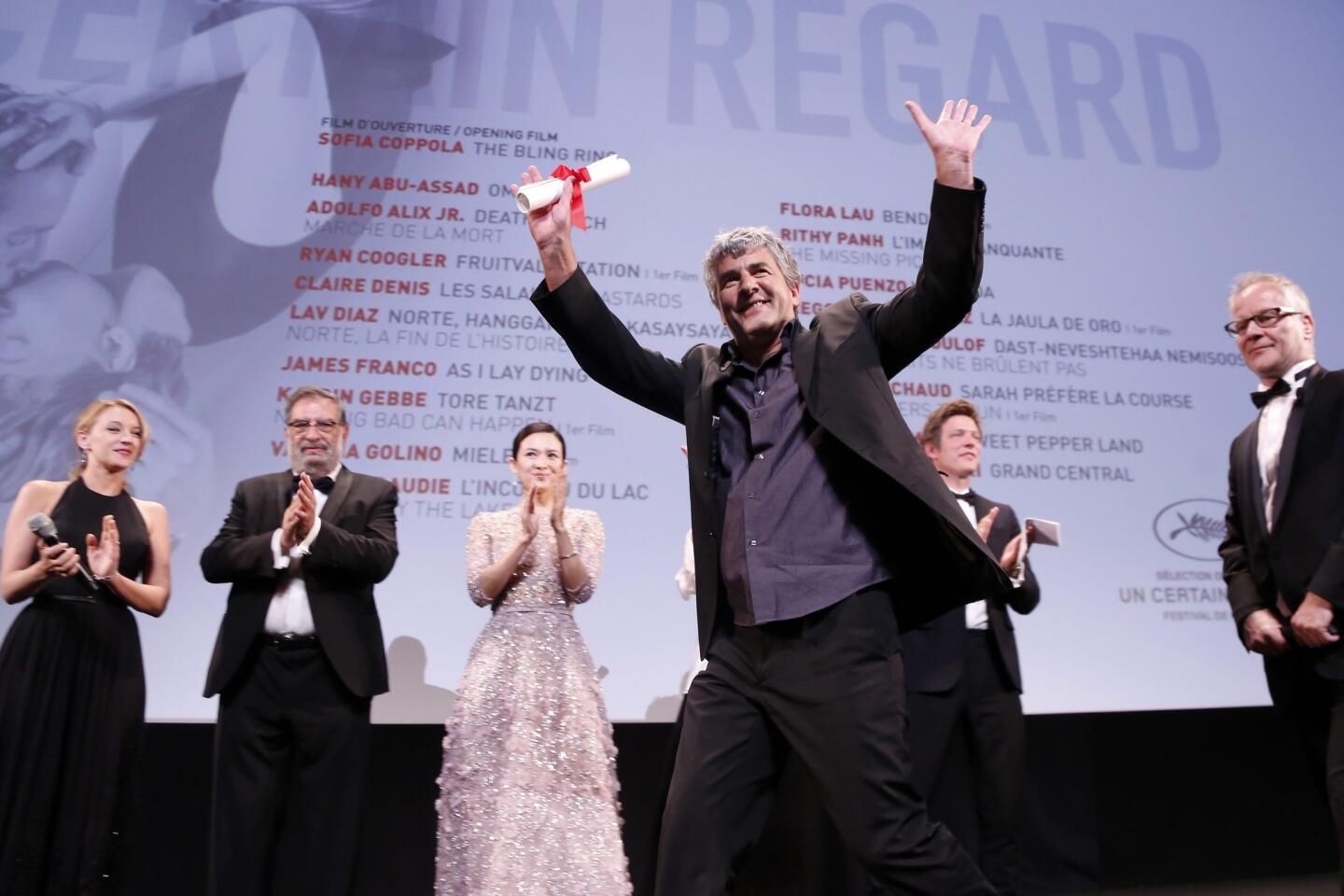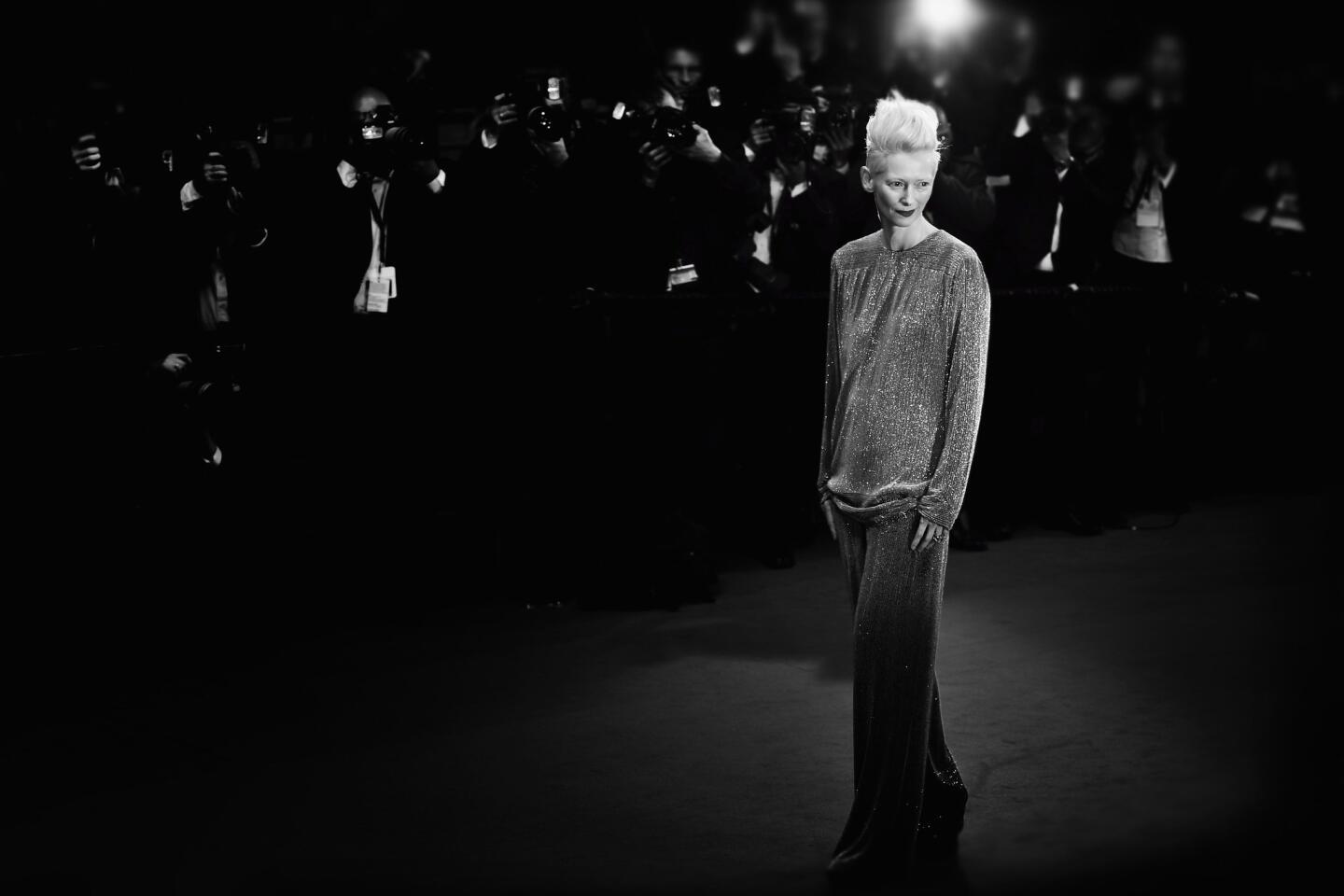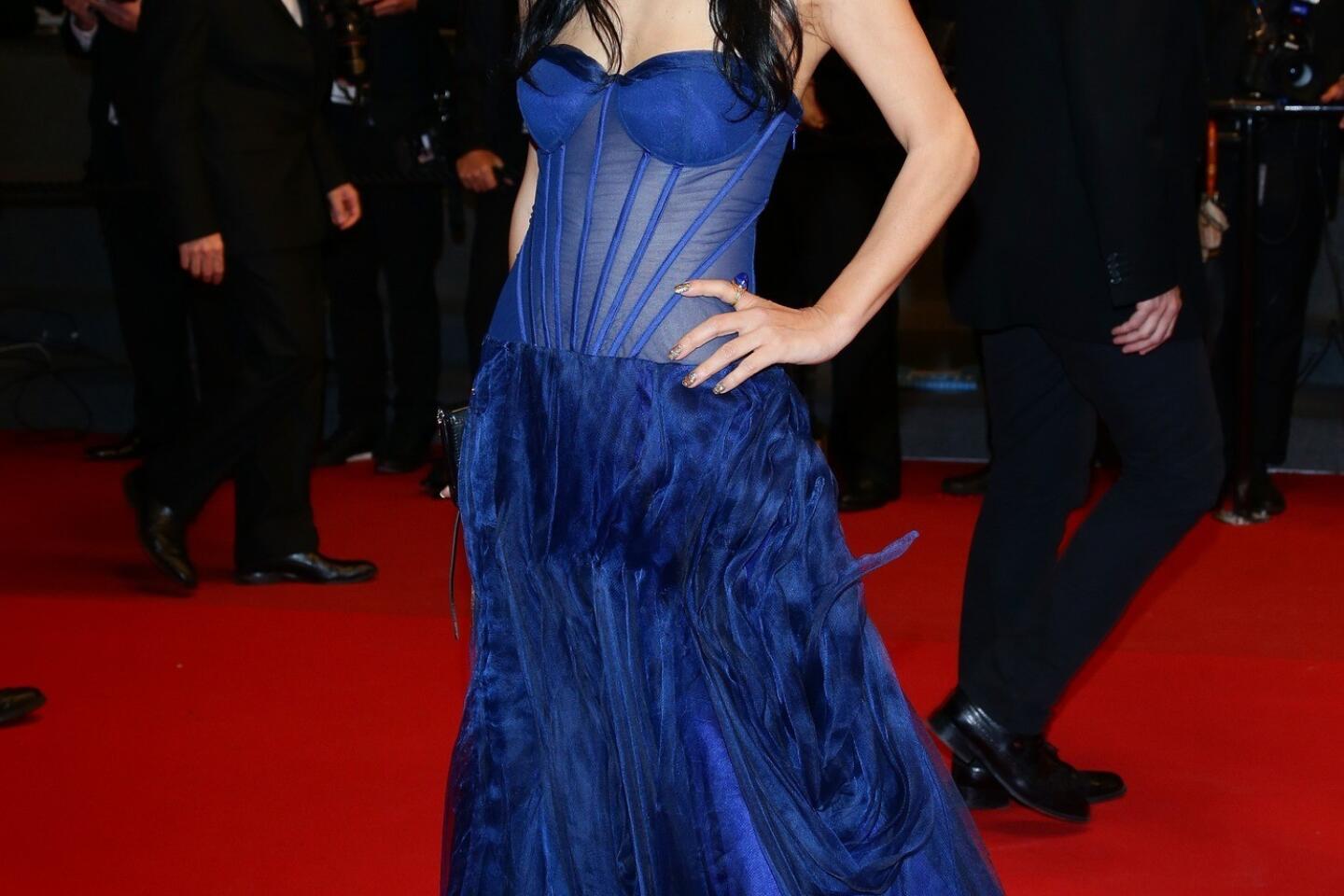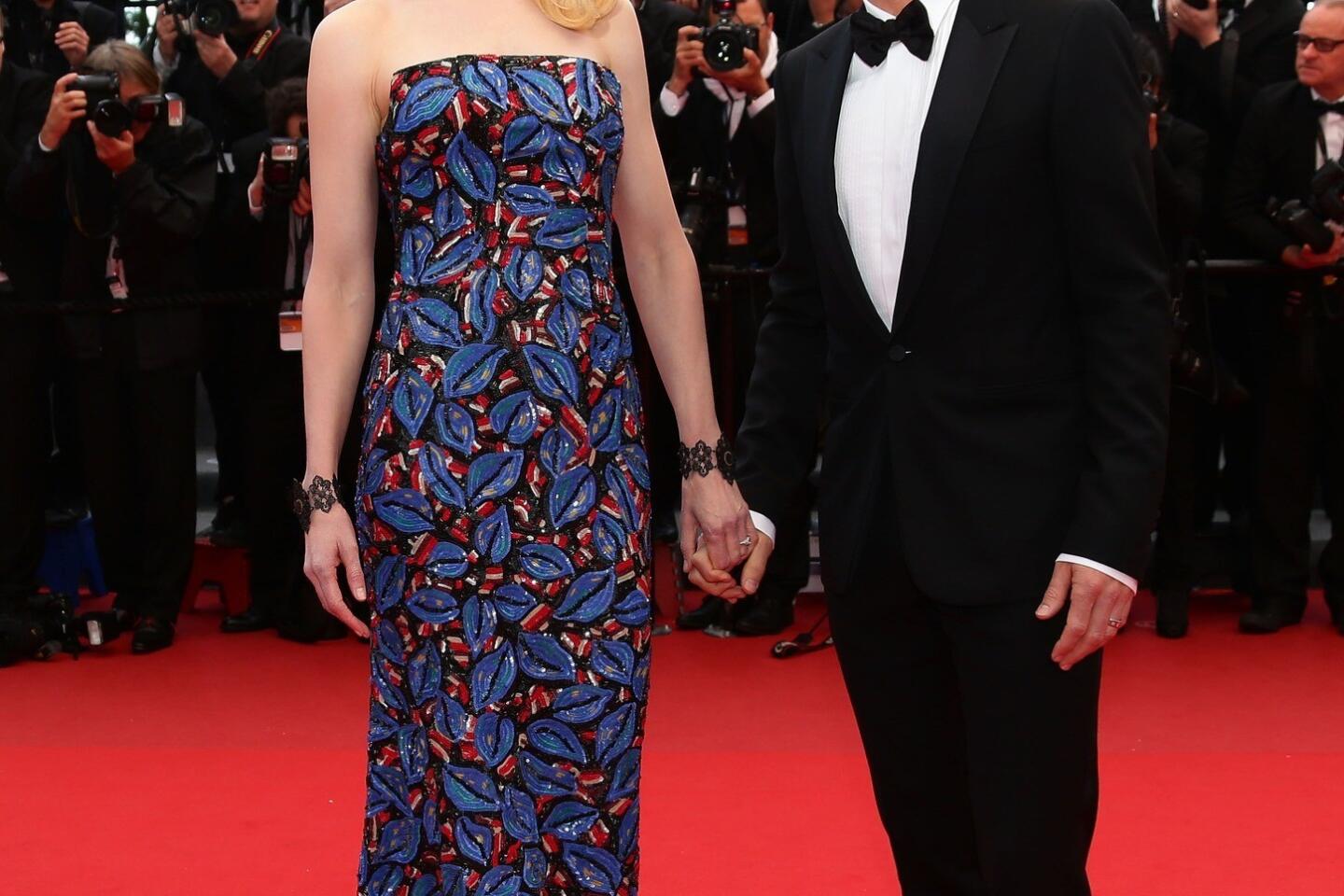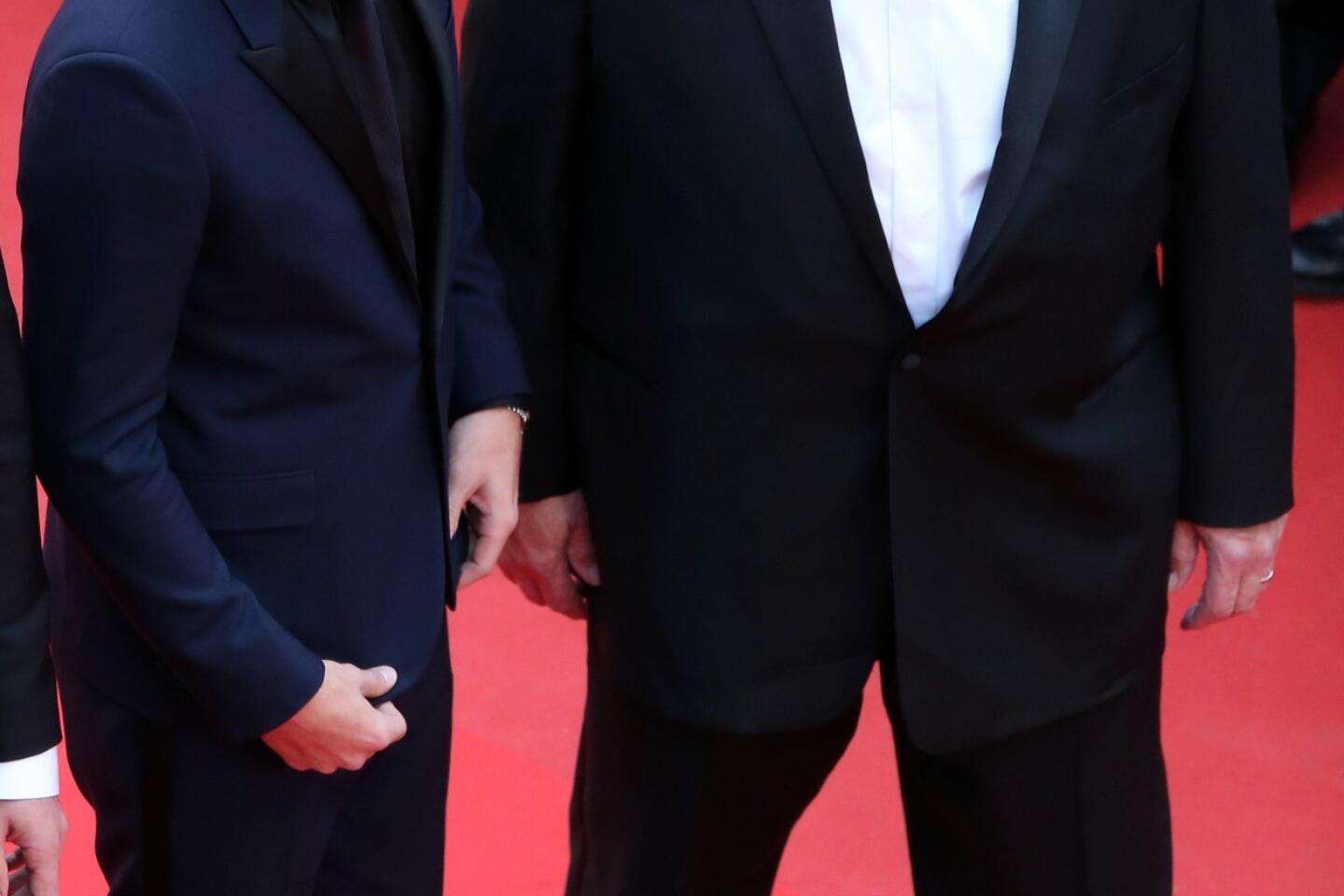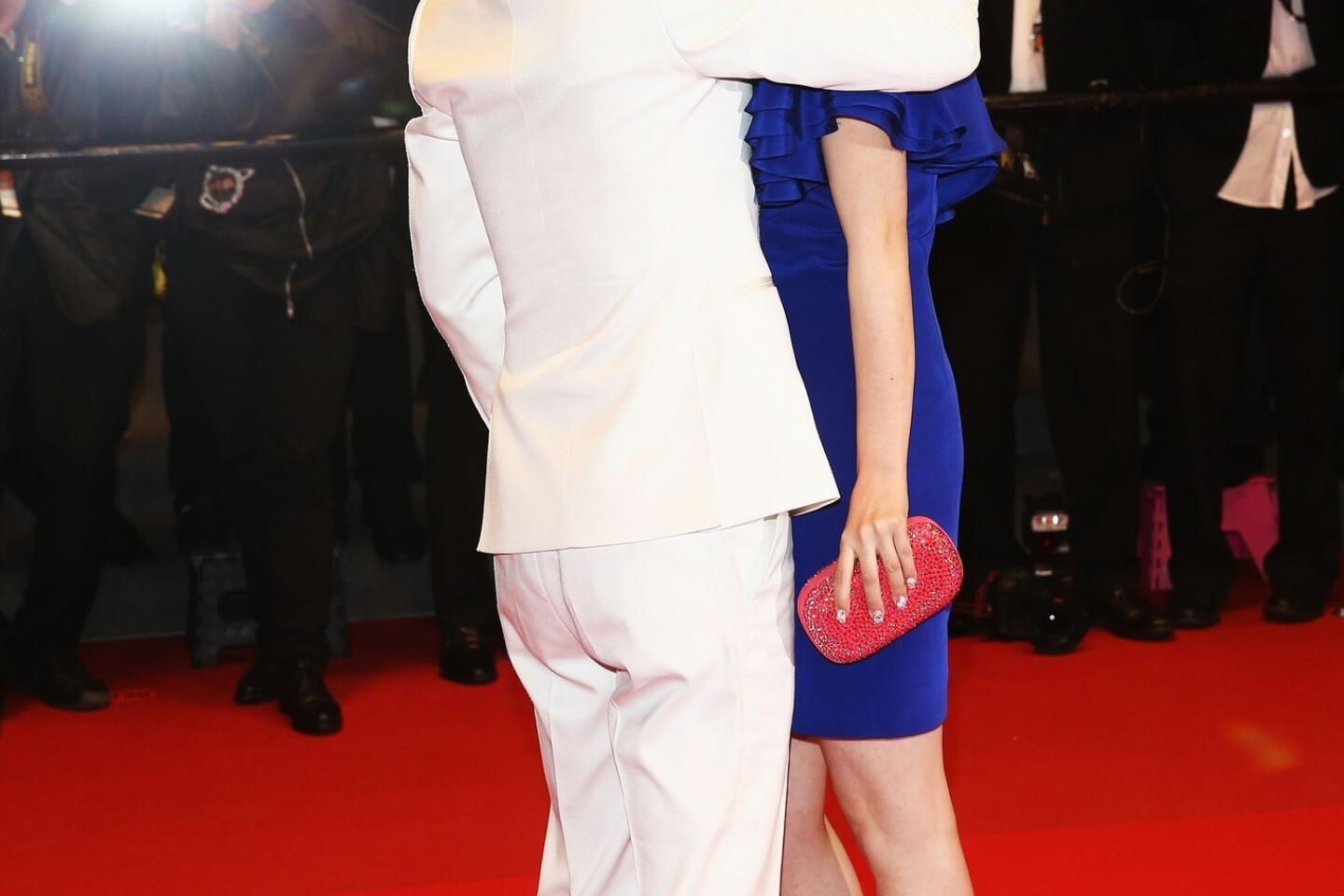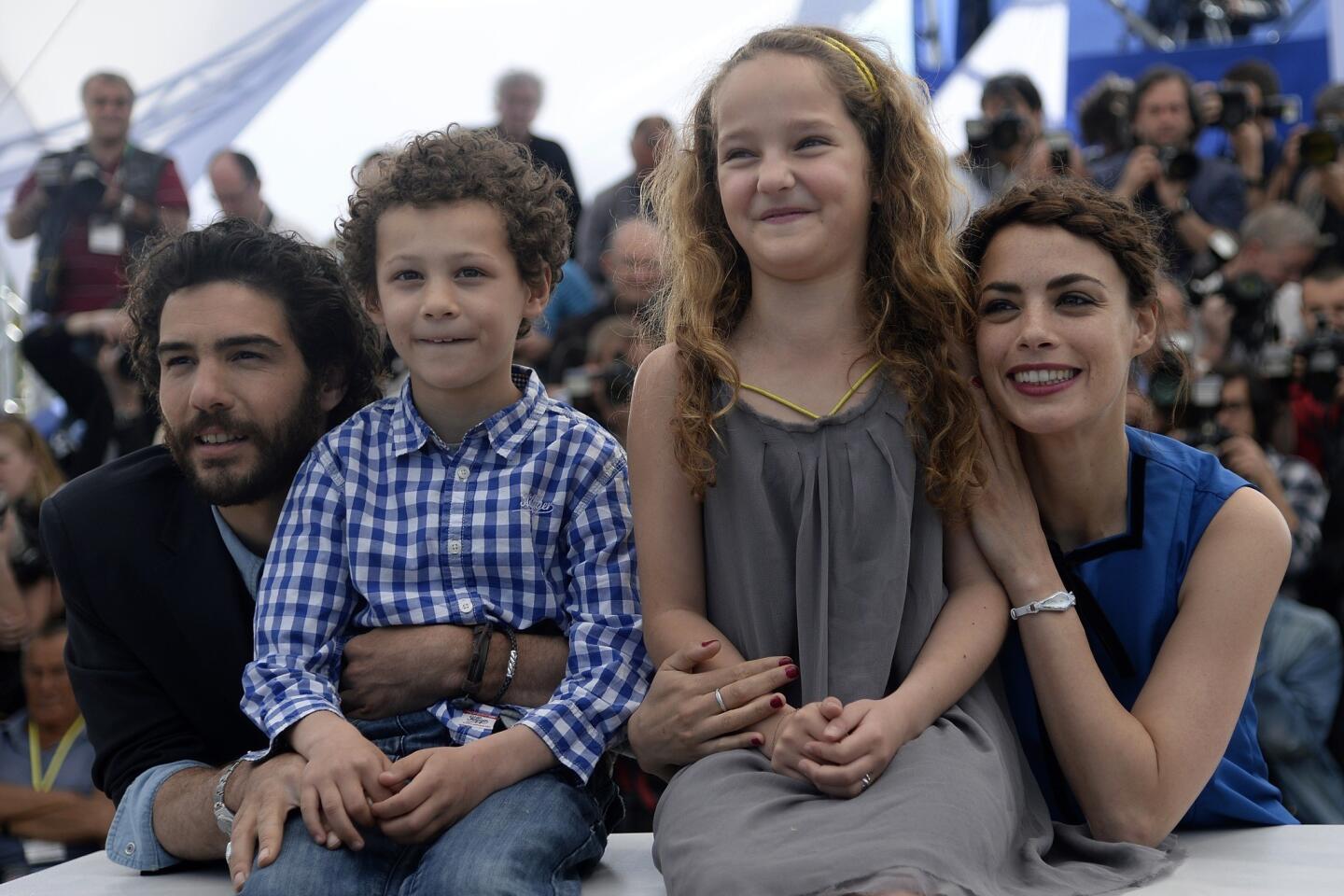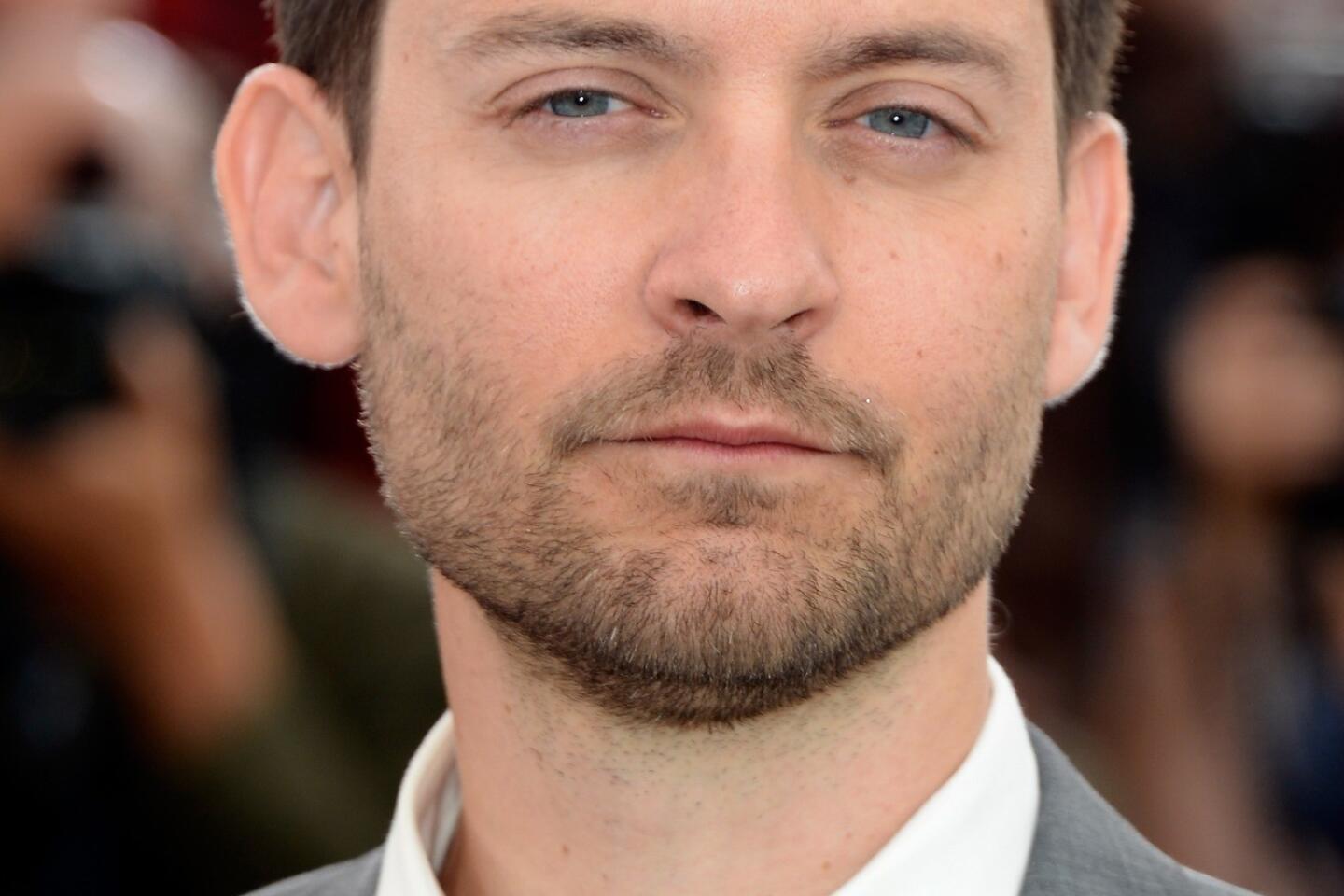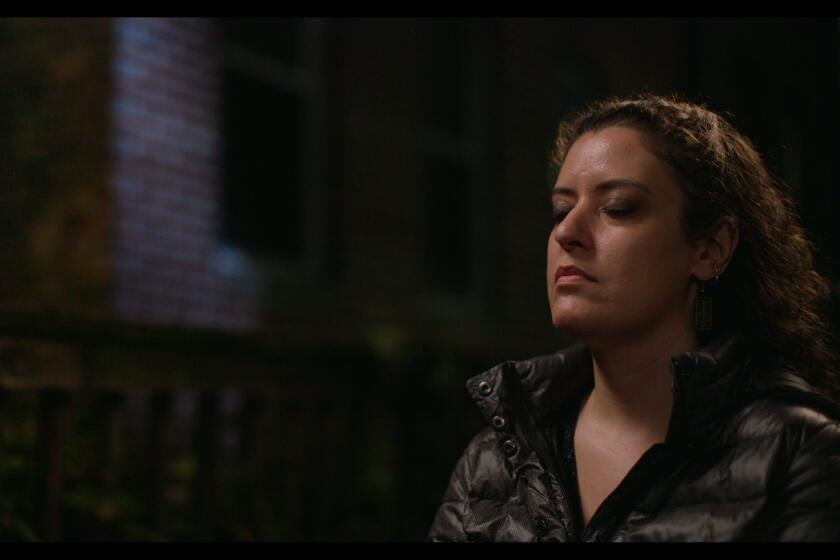Cannes Film Festival: J.C. Chandor’s ‘All Is Lost’ is unusual survival tale
CANNES, France — For his 2011 Wall Street drama “Margin Call,” writer-director J.C. Chandor put an ensemble of stars including Kevin Spacey, Jeremy Irons, Demi Moore and Zachary Quinto into corporate offices and had them talk furiously as a crisis at their characters’ firm climbed up to the executive suites.
Chandor’s unconventional new film, “All Is Lost,” unveiled at the Cannes Film Festival this week, goes in a vastly different direction: It features just one character, played by Robert Redford, on a sailboat. He’s forced below deck (and lower still) when a storm and other life-threatening travails come his way. He barely utters a sound the entire movie.
Both films, though, actually come from a similar thematic place: They’re about the desperate and resourceful things we do to survive.
PHOTOS: Cannes Film Festival 2013
“These two movies are the opposite but also the same,” said Chandor, who was nominated for an original screenplay Oscar for “Margin Call.” “That one in a weird way helped feed this one, even as I knew I wanted to tell a very different story.”
At once a formal experiment and a grand allegory, “All Is Lost” opens with the lone unnamed sailor hundreds of nautical miles offshore, in the sea off Sumatra. In voice-over, he reads a regretful letter to his family as the end bears down. Apart from an occasional exclamation, these are the last words he speaks.
The boat, we quickly learn, has sprung a leak after ramming into an unmoored shipping container, and the sailor must patch the hole or risk sinking. It is the first of a series of issues involving weather, ship construction and supplies, and over the course of the film the sailor finds creative ways, MacGyver-like, to overcome each new obstacle, even as the film seems to be marching toward a tragic conclusion. The camera rarely moves more than 10 feet from Redford — “impotent filmmaking, like the opposite of omnipotent filmmaking,” Chandor joked — as the viewer faces the great unknown along with him.
CHEAT SHEET: Cannes Film Festival 2013
If the plot is minimal, the metaphor is abundant. The movie plays with symbols that could, depending on one’s interpretation, connote such big ideas as love, isolation and death as the film takes an older man — close-ups of Redford’s wizened face are numerous — and puts him through his paces.
“What I wanted to do was tell the audience as little information as possible so that, if it’s a little jarring at first, after a while they’ll start filling in their own story,” Chandor said Wednesday, shortly after his movie screened for the media (it will arrive in U.S. theaters in October). “My producer had a word for it — he called it an ‘existential action movie.’”
Though “All Is Lost” includes plenty of tense moments, it’s hardly the kind of overtly commercial project Chandor was in position to do coming off the success of “Margin Call.” His first feature received an enthusiastic reception at the 2011 Sundance Film Festival and went on to gross about $19 million in worldwide box office and millions more on video-on-demand. Chandor was beset with studio offers, but none, he said, spoke to him.
“It was basically, ‘Margin Call in a Law Firm!’ ‘Margin Call in Government!’” said Chandor, 39, who spent more than a decade shooting commercials before making “Margin Call.” “And I wouldn’t get paid much with these new ‘Margin Calls’ because the studios see a film like this as an opportunity for a young filmmaker. And on top of that, you’re asked to take someone else’s idea and make it good.”
He decided to write his own story instead. Armed with just a 32-page script — there is, after all, nearly no dialogue — he approached Redford, whom he thought would bring physical prowess and psychological complexity to the part. Chandor also believed Redford’s presence would help attract financing for the $9-million production.
Redford, in his mid-70s and looking for a new acting challenge after directing and starring in a more conventional film, “The Company You Keep,” jumped at the chance. “The challenge of being solitary without having the crutch of words, that was a challenge that was very attractive,” Redford said after the Cannes screening. “I wanted to give myself over to that.” (Redford, Sundance’s founder, also joked that he wished more festival alums would give him jobs.)
Redford, Chandor and the crew spent several months in Mexico, where they shot about 20% of the film in the open sea and the rest at a production facility. It was treacherous at times — Redford insisted on doing some of his own stunts — and Chandor said Redford’s wife warned him that if Redford got hurt, she wouldn’t let him continue. (He was not injured.) Chandor, who lives in New York, moved his wife and children south of the border for the duration of the production.
Chandor said that his two films share the survival theme because it’s something he’s long been interested in and because it’s “the kind of movie that looks fun to make — though it really isn’t.”
“All Is Lost” seems sure to elicit comparisons to “Life of Pi,” Ang Lee’s 2012 hit about a boy trapped on a lifeboat with a tiger. Chandor pointed out some differences but said he is trying — with mixed results — not to sweat it. “It always makes you nervous when you see a movie that has a similar premise,” he said. “Then again, the fact that that was a hit makes it a pretty good proof of concept.”
He’s also aware that the film could sound like a slog. No talking? One character? Just a slowly sinking boat?
“I can hear what people might say,” he said, laughing. “But I think of this as a horror movie or an action movie. It’s just not the kind we’re used to.”
“It’s like boxing,” he added. “There’s Mike Tyson, knocking you out with one punch. What I tried to do in both my films is body blow, body blow, body blow. I’m wearing you down emotionally. And hopefully when that’s happened you’re ready to feel something.”
More to Read
Only good movies
Get the Indie Focus newsletter, Mark Olsen's weekly guide to the world of cinema.
You may occasionally receive promotional content from the Los Angeles Times.

